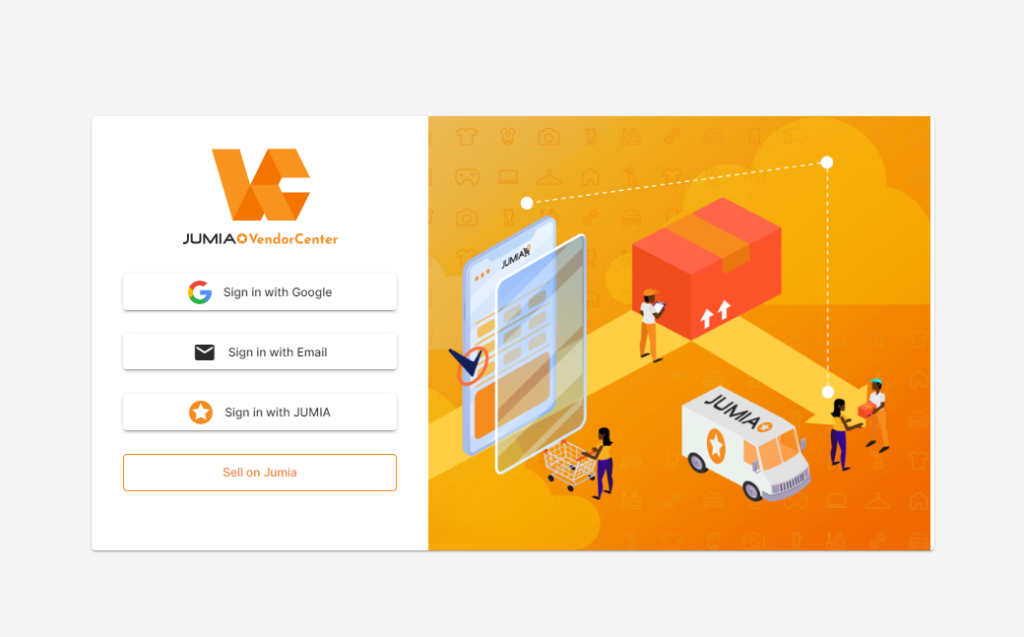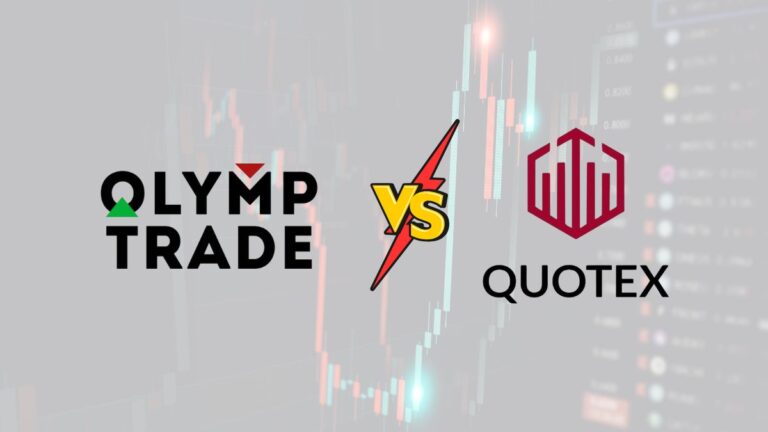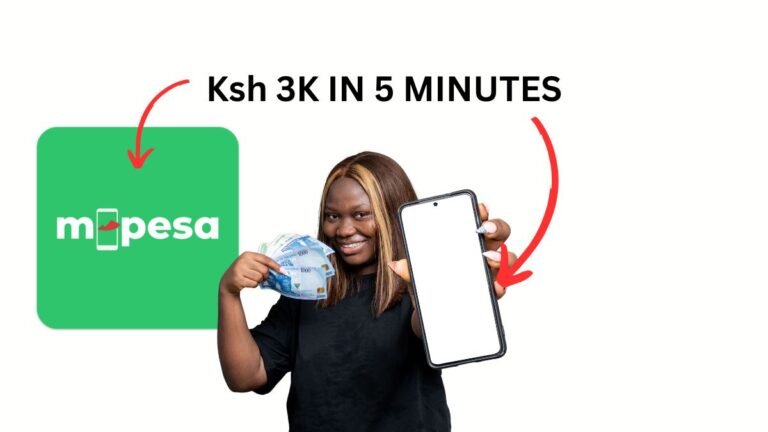How To Dropship on Jumia Kenya
Jumia Kenya is an online marketplace that offers dropshipping services to sellers.
In this blog post, we will discuss how to dropship on Jumia Kenya in detail.
To start dropshipping on Jumia Kenya, you need to follow these steps:
Step 1: Identify the Products Category
The first step is to identify the products you want to sell.
You can choose from a wide range of categories, including electronics, fashion, beauty, and home appliances.
It is essential to select a niche that you are passionate about and has high demand in the market.
While Jumia doesn’t publicly disclose its overall best-selling categories, here are some insights based on various sources and trends:
Top Categories:
- Fast-Moving Consumer Goods (FMCG): This includes everyday essentials like groceries, toiletries, personal care items, and cleaning supplies. These products are consistently in high demand due to their regular repurchase nature.
- Fashion: Clothing, shoes, and accessories are popular across various demographics, with growing demand for trendy and affordable options.
- Electronics & Appliances: Smartphones, TVs, laptops, home appliances, and other electronic devices see high demand, driven by advancements, affordability, and easy financing options.
- Phones & Tablets: With increasing mobile phone usage and diverse needs, smartphones and tablets cater to communication, entertainment, and work needs.
- Home & Office: This category umfasst Möbel, Dekorationsartikel, Haushaltswaren, Bürobedarf und mehr und profitiert von steigenden Investitionen in die Gestaltung von Wohn- und Arbeitsräumen.
Other Promising Categories:
- Health & Beauty: Personal care products, cosmetics, and health supplements see growing demand due to rising disposable incomes and focus on personal well-being.
- Baby & Kids: Products catering to babies and children, including apparel, toys, and baby essentials, benefit from a large and growing young population.
- Gaming: Video game consoles, accessories, and digital games witness increasing popularity, especially among younger demographics.
- Sports & Fitness: Growing health consciousness fuels demand for sporting equipment, apparel, and fitness trackers.
Remember, these are general insights, and specific best-sellers can vary depending on seasonality, trends, and regional preferences.
Conduct thorough market research and analysis to identify the most profitable categories for your specific business goals.
Step 2: Sourcing the Right Suppliers
The next step is to find reliable suppliers who can provide quality products at a reasonable price.
You can use Alibaba and AliExpress as supplier options.
These platforms offer a wide range of products at competitive prices.
To dropship on Jumia, you must be around Nairobi. This means that you can rely on outside-the-country dropshipping suppliers.
In that case, here are some of the top wholesalers in Nairobi:
- Carrefour – sells groceries, electronics, clothing, and household items.
- Co-op – sells groceries, electronics, clothing, and household items.
- Whole Foods Market – sells organic and natural foods, supplements, and personal care products.
- Decathlon – sells sports equipment, clothing, and accessories.
- Majid Al Futtaim Group – sells groceries, electronics, clothing, and household items.
- Nanjing Africa Co., Kenya Ltd – sells solar energy solutions, energy auditing, oil/petroleum solutions, street lighting, and high masts.
- Freshon Energy Solutions Ltd – sells solar energy solutions, energy auditing, oil/petroleum solutions, street lighting, and high masts.
- AZOOM General Trading Ltd – sells agricultural products, construction materials, and general merchandise.
- AgriTerra Trade International Ltd – sells agricultural products, construction materials, and general merchandise.
- Aryuv Agencies Ltd – sells agricultural products, construction materials, and general merchandise.
Step 3: Placing Products on Jumia
Once you have identified the products and suppliers, the next step is to place the products on Jumia.
Jumia operates within a secure space for sellers, and you can upload the products on the website.
To upload products on Jumia, you can follow these general steps:
- Register as a Seller: Register on the Jumia platform and complete the required documentation, including business registration and bank account details.
- Become Familiar with the Platform: Complete the New Seller Training to become familiar with the Seller Center and activate your Seller Center Account.
- Product Upload and Management: You can add products to your store one by one via the Jumia website. If your products don’t exist in the Jumia catalog, you can create new offers one by one or massively with file upload via the Seller Center platform. You will need information such as EAN or UPC, product name, detailed description, high-quality pictures, price, and available stock.
- List and Sell Your Products: Upload your best-selling products and start selling on the Seller Center platform.
Once an order is made, Jumia sends a NOTIFICATION.
All you need to do is collect the item from the seller and deliver it to the Jumia Drop Off locations in Nairobi.
Jumia will then charge an agreed commission only for items sold.
Jumia VDOs are Vendor Drop Off locations in Kenya
Jumia VDOs (Vendor Drop Off locations) in Kenya are places where vendors can drop off their orders, pick up returns, and resolve any issues related to their Jumia orders.
These drop off locations are available at various places in Kenya including:
- Kaka House 1st Floor. Maua Close Opposite Unga House
- Kantaria House Ground Floor, Muindi Mbingu Street Opposite Jevanjee Garden
- DENFA LUTHULI VDO- Station
- Mang Hotel Haile Selassie Avenue, Opposite KFA building, Junction of Haile Selassie and race course Rd.
- The Hub mall Karen
- Vision Plaza, Msa Rd, Rm G28 off Msa Rd.
The Lucytech Monrovia VDO-Station drop off locations accept small, medium, and selected large items, such as TVs up to 49 inches and home theaters.
The operating hours for these drop-off locations are typically from Monday to Friday, 9:00 AM to 6:00 PM, and on Saturdays from 8:00 AM to 4:00 PM.
These VDOs are an essential part of Jumia’s logistics network, enabling vendors to manage their orders efficiently and conveniently.
For more information, vendors can contact Jumia’s support team or refer to the official Jumia Vendor University YouTube channel, which provides guidance on various aspects of selling on Jumia, including drop off and pick up stations.
Step 4: Optimize Product Descriptions, Images, and Pricing
It is essential to optimize product descriptions, images, and pricing to increase your chances of making sales.
Ensure that the product descriptions are accurate and detailed, and the images are of high quality.
Pricing should be competitive to attract customers.
Step 5: Follow-Up and Customer Service
It is crucial to follow up with customers and provide excellent customer service.
Jumia offers free access to the seller center, which keeps the retailer in the loop during customer interactions.
Any returns take place in the secure space of the seller.
Fees for selling on Jumia
Now that you know how to dropship on Jumia Kenya, let’s talk about fees!
Jumia charges several fees when you sell on their platform, depending on various factors like delivery method, product category, and storage options. Here’s a breakdown of the main ones:
Commissions:
- Percentage-based: This is the primary fee, calculated as a percentage of the total item price (including VAT). The exact percentage varies depending on the product category, ranging from 3% to 15%. You can find the specific commission for your category on the Jumia VendorHub website (https://vendorhub.jumia.co.ke/commissions/).
Shipping Cost Contribution:
- This fee helps subsidize shipping costs and varies based on the product category and chosen delivery method. The fee structure differs for Jumia Express (items stored in Jumia’s fulfillment centers) and Drop Shipping (items shipped directly from your supplier). Check the VendorHub website for specific rates.
Jumia Express Storage Fees:
- If you use Jumia Express, you incur storage fees based on the item size, weight, and duration it stays in the warehouse. Fees increase the longer the item remains in storage, incentivizing quicker sales. For the first 15 days, storage is free for most categories.
Payment Gateway Fees:
- Jumia charges a processing fee for each transaction completed through their payment gateway. This fee is usually a percentage of the total order value.
Additional Fees:
- In some cases, you may encounter other fees like return processing fees, order cancellation fees, or fees for specific promotions or marketing initiatives.
Remember:
- It’s crucial to factor all these fees into your pricing strategy to ensure you maintain a profitable margin.
- Jumia’s fee structure can change occasionally, so stay updated by checking the VendorHub website (https://vendorhub.jumia.co.ke/commissions/).
- Consider using tools like the Jumia Profit Calculator (https://vendorcenter.jumia.com/) to estimate your potential earnings after accounting for all costs.
How to register on Jumia as a seller

Here’s how to register on Jumia as a seller:
1. Visit the Jumia Seller Center:
Go to the Jumia Seller Center registration page: https://vendorcenter.jumia.com/sign-up.
2. Choose your seller type:
Select whether you are registering as an individual or a company. This will determine the required documents later.
3. Fill out the registration form:
Enter your basic information, including your name, email address, phone number, and desired store name.
4. Provide business information (if applicable):
If you registered as a company, provide your company name, registration number, and tax identification number.
5. Upload required documents:
Depending on your seller type, you will need to upload specific documents for verification. These typically include:
- Individual sellers: A copy of your ID (passport or national ID)
- Company sellers:
- A copy of your business registration certificate
- A copy of your bank account statement or registration certificate
- Your KRA PIN certificate
6. Agree to the terms and conditions:
Carefully read and agree to Jumia’s terms and conditions for sellers.
7. Create your password:
Set a strong password for your Seller Center account.
8. Complete the registration:
Click on the “Register” button to submit your application.
9. Wait for approval:
Jumia will review your application and documents. You will receive an email notification once your account is approved.
10. Complete onboarding:
Once approved, you will need to complete Jumia’s onboarding process. This includes watching training videos, taking a quiz, and setting up your payment information.
Additional tips:
- Have all your documents scanned and ready before starting the registration process.
- Choose a unique and memorable store name that reflects your brand.
- Familiarize yourself with Jumia’s seller policies and guidelines.
- Consider starting with a small number of products to test the waters before expanding your selection.
Follow these steps and you can successfully register as a seller on Jumia and start selling your products to millions of customers across Africa.
How to access the Jumia Seller Center Account
You can access the Jumia Seller Center by following these steps:
- Go to the Jumia Seller Center login page: https://vendorcenter.jumia.com/login
- Enter your registered email address and password.
- Click on “Sign in”.
How to dropship from AliExpress to JUMIA
While technically possible, dropshipping from AliExpress to Jumia isn’t generally recommended due to several challenges and potential downsides:
Challenges:
- Shipping Times: Products shipped from China via AliExpress can take weeks or even months to reach customers in Kenya, leading to poor customer experience and potential refund requests.
- Quality Control: Ensuring product quality from individual AliExpress sellers can be difficult, potentially damaging your reputation on Jumia.
- Profitability: After factoring in Jumia’s fees, shipping costs, and potential returns, the profit margin might be slim or non-existent.
- Jumia Product Restrictions: Jumia prohibits selling certain categories sourced from outside Africa, like used items or counterfeit goods.
- Competition: Jumia already hosts many sellers sourcing directly from African suppliers, offering faster shipping and potentially lower prices.
Alternatives:
- Source from African suppliers: Look for reliable suppliers closer to Kenya to offer faster shipping and reduce logistics headaches. Platforms like Jumia Express can connect you with verified suppliers.
- Consider local dropshipping options: Explore dropshipping partnerships with Kenyan businesses to offer faster delivery and potentially better profit margins.
- Choose alternative dropshipping models: Consider using Jumia Express or partnering with a local fulfillment center to store products closer to your customers.
If you still want to attempt AliExpress dropshipping:
- Thoroughly research: Carefully select suppliers with proven track records of fast shipping, good quality, and positive customer reviews.
- Factor in all costs: Calculate your profit margin after accounting for Jumia fees, shipping costs, potential returns, and any additional expenses.
- Focus on niche products: Look for unique items with less competition on Jumia and potentially higher profit margins.
- Offer excellent customer service: Be prepared for delays and proactively manage customer expectations regarding shipping times.
Remember, success with dropshipping requires careful planning, research, and adaptability. Consider the alternatives and challenges before committing to AliExpress dropshipping on Jumia.
Types of products that can’t be sold on Jumia
So far, I have shown you how to dropship on Jumia Kenya.
Here are some types of products that cannot be sold on Jumia:
Prohibited Products:
- Narcotics and illegal drugs: These are illegal substances that are harmful to health and society.
- Weapons and ammunition: These can be used to cause harm and are strictly regulated.
- Counterfeit goods: These are fake products that infringe on the intellectual property rights of others.
- Hazardous and dangerous materials: These can pose a risk to human health and safety.
- Used products: Jumia generally does not allow the sale of used products, with some exceptions (e.g., certified pre-owned electronics).
- Live animals and plants: These are regulated and cannot be sold through Jumia’s platform.
- Human remains and organs: These are illegal and unethical to sell.
Restricted Products:
- Products requiring local permits: These include items like foodstuffs, alcohol, medicines, and electronics, which require specific licenses or registrations depending on the country.
- Age-restricted products: These products, such as tobacco and alcohol, can only be sold to customers above a certain age.
- Products with high risk of counterfeiting: Jumia may require additional verification or authentication for products in categories with a high risk of counterfeiting, such as luxury goods and electronics.
Additional Prohibited and Restricted Products:
- Products that promote violence, hate speech, or discrimination.
- Products that are sexually suggestive or explicit.
- Products that are harmful to the environment.
- Products that violate the privacy of others.
Note that this is not an exhaustive list, and Jumia’s policies may vary depending on the country or region.
If you are unsure whether a product is allowed for sale on Jumia, it is always best to contact Jumia for clarification before listing it.
How are returns handled on Jumia?
Jumia accepts product returns in the following cases: if the product is not the one ordered or if the product is defective.
Customers are allowed to return items within 7 days of delivery if they change their mind.
However, customers are not allowed to return products from certain categories such as innerwear, swimsuits, gym wear, sleepwear, perfumes, jewelry, health & wellness products, adult toys, and products shipped from overseas.
To initiate a return, customers need to click on the order of the item(s) they want to return, select the number of items they wish to return, the reason for the return, and give Jumia more details to help them identify the issue with the product.
Customers can choose to return the item themselves to one of Jumia’s eligible drop-off stations or let Jumia handle it by picking it up.
Once Jumia receives the returned item, they will inspect it and process the refund within 7 business days via voucher or MTN mobile money.
Sellers will receive their product back within a month if the final client decides to return it, and Jumia’s customer service will ensure the product is not faulty and reimburse the seller the value of the product.
Pros and Cons of Dropshipping on Jumia Kenya
Before starting a dropshipping business in Jumia Kenya, it is essential to understand the advantages and disadvantages of this business model.
Pros:
- Minimal upfront investment: Unlike traditional retail models, dropshipping requires no inventory purchase, reducing initial capital requirements.
- Easy to start: With the right platform, like Jumia, setting up a dropshipping business can be quick and straightforward.
- Flexibility: As a dropshipper, you can work from anywhere and at any time.
Cons:
- Limited control over the supply chain: As a dropshipper, you rely on suppliers to fulfill orders, and any delays or quality issues can affect your business.
- Low-profit margins: Dropshipping is a highly competitive market, and profit margins can be low.
- Shipping and handling issues: Shipping and handling can be a challenge, and any delays or damages can affect customer satisfaction.
Conclusion
Dropshipping on Jumia Kenya is an excellent opportunity for entrepreneurs to start an online business with minimal investment.
By following the steps outlined in this blog post, you can start dropshipping on Jumia Kenya and build a profitable online business.
However, it is essential to understand the pros and cons of this business model and take necessary precautions to ensure the success of your business.
Read also:







